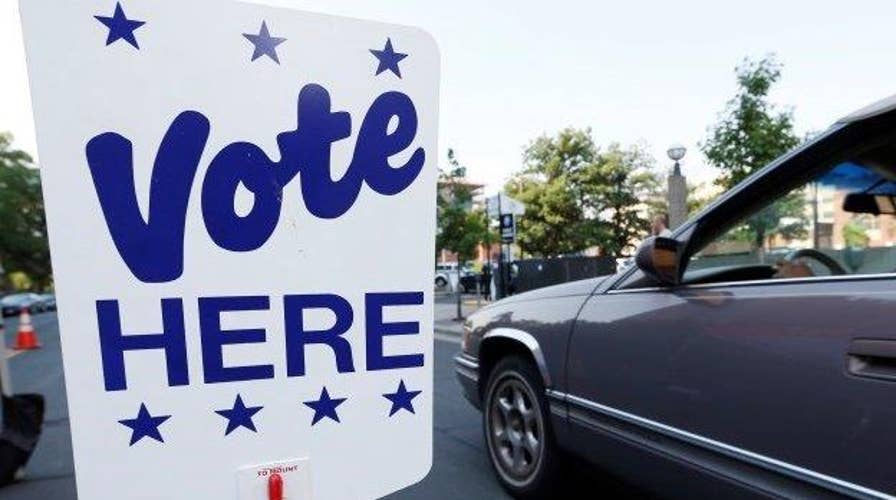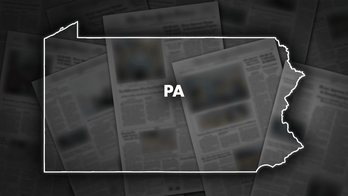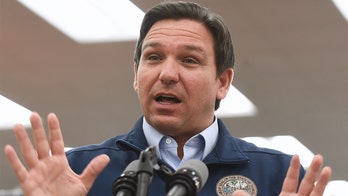There's always been a political divide between city and country dwellers, but experts say this election year the gap is wider than ever before.
"It's expedited quite significantly over the past decade or so," said Ross C. Devol, chief research officer for the independent economic think tank The Milken Institute. "And the recession probably edged it on even further."
During America's recovery from the recession of 2008, many metropolitan areas around the country have seen significant job growth, resulting in booming populations that further fuel their economies.
DeVol said communities in rural America have not been brought along for the ride, adding "We've actually seen a decline in population between 2010 and 2015 in rural America."
Colorado was the second fastest growing state in the country from 2010 to 2015. But that growth has been mostly concentrated in the urban corridor running north and south in the middle of the state. Other than Colorado Springs, with its numerous military facilities, most of the cities in this urban strip trend Democratic.
Ellen Dumm is a public relations strategist living in Denver who feels America has gotten better during the last administration. "We were in the midst of the worst economic recession I'd ever experienced in my lifetime, so I think definitely in the last eight years, things have improved," she said.
A lifelong Democrat, Dumm plans to vote for Hillary Clinton in November.
Most of the less populous eastern and western parts of the state trend Republican. Eric Van Dyk is a farmer and rancher in Rocky Ford, a small town in Otero County in the southeastern part of Colorado.
Though not a huge fan of Donald Trump, he said he will vote for him, explaining, "Well I think the Republican Party is in the best interest of agriculture and people that are more rural living. They're more concerned about keeping our way of life."
Van Dyk works a second job, teaching at Rocky Ford High School, but has no plans to leave the town he loves.
"Had a lot of opportunities to do other things and go other places and ultimately wanted to raise my kids here,” he said. “The community really comes together and supports one another."
Along with Colorado, the key battleground states of Virginia and North Carolina are seeing the greatest increase in the gap between urban and rural areas in terms of population growth and economics, according to a report by the Economic Innovation Group.
Devol said the growing economic divide has much to do with increasing globalization "because the U.S. is able to compete most effectively in high value added services, so called knowledge economy jobs. We're talking about software engineers, biotechnology and those are growing in urban areas."
As urban America grows and rural America shrinks, the relative political clout of each follows suit.
"Really, it's hard to say what needs are being addressed," said Otero County Commissioner Kevin Karney. "It's easier to say what needs aren't being addressed."
With Otero County's population just around 20,000, Karney said getting the attention of lawmakers is a never-ending battle.
"Individually, Otero County does not have a strong voice. We have to form alliances with other counties and go as a group in order to have a voice at the state capitol and especially at the national level," he added.
The frustration was palpable as Karney talked about billion dollar highway improvement projects in the Denver area. "You know our road conditions out here in rural Colorado continue to deteriorate, our infrastructure on bridges and surface conditions," he said.
According to DeVol, as the gap between city and country continues to grow, "to some extent we're losing the ability to communicate effectively about the various problems that we're facing."
Which in turn only adds fuel to the angry political discourse being heard in some quarters this year.
"It is coming from both sides," Dumm said. "And I think it's the more extreme portions of the divide, whether you're progressive or conservative."
The urban-rural divide will be with us for some time to come, according to DeVol. "I think as we've left the recessionary period and moved through the expansion it might not continue at the same pace, but long term there's no indication that it's going to reverse."
Fox News' Alicia Acuna and Lloyd Gottschalk contributed to this report.





